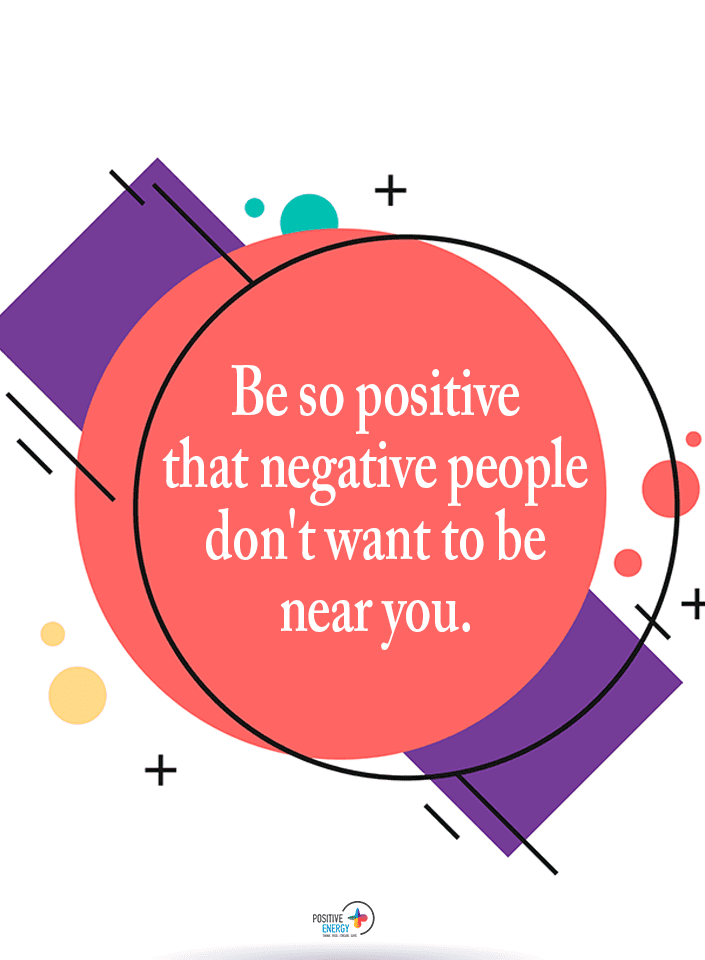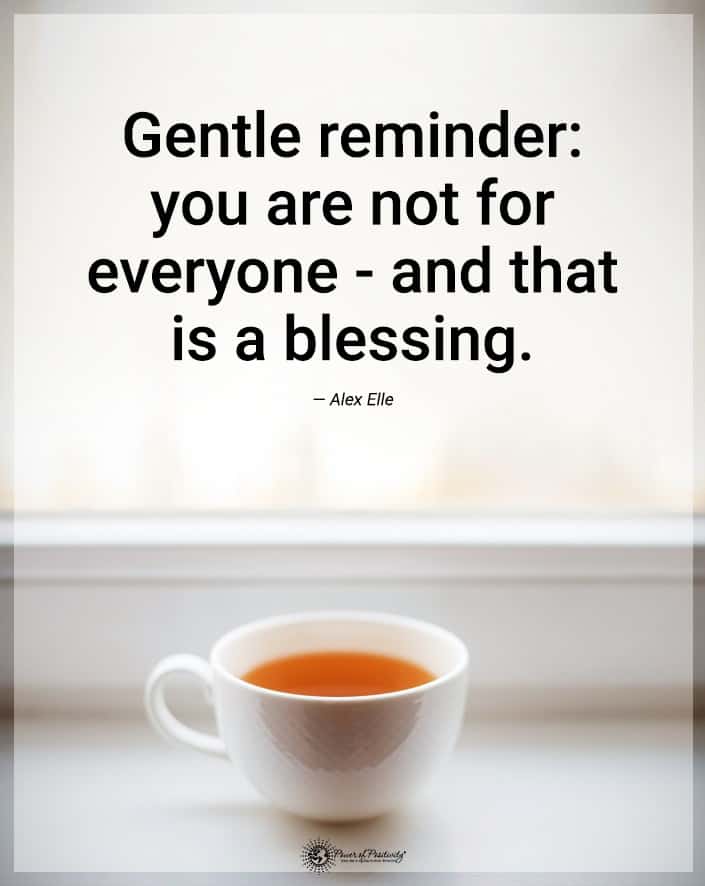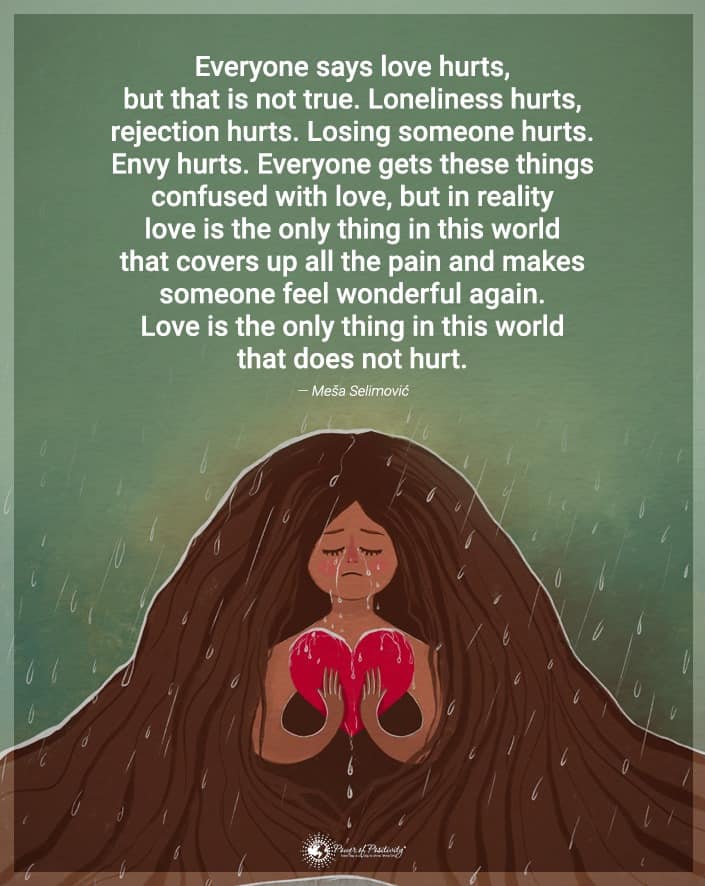Rejection leaves a sour taste in just about anyone’s mouth. But it will happen to you at some point in your life. Whether it’s friends, partners, or even family members, you will be pushed to the side at some point. This even happens in careers. You’ll be rejected left, right, and center when you start making a name for yourself.
Taking rejection personally can be a common and natural response, as it can directly attack one’s self-esteem and self-worth. It can be difficult to separate oneself from rejection, leading to feelings of hurt, anger, and disappointment. However, it is essential to recognize that rejection is a normal part of life and is not always a reflection of one’s abilities or character. It is often a matter of timing or circumstance.
People who struggle with taking things personally tend to personalize it. They make it all about them. They think rejection is because they are not good enough, smart enough, attractive enough, etc. It can affect their self-esteem and self-worth, leading to negative thoughts and emotions. Managing these emotions and thoughts is crucial to avoid them from becoming overwhelming.
9 Ways to Stop Taking Rejection Personally
1. Understand That Rejection Is Normal
Rejection is a normal part of life because it is a natural outcome of attempting something new or different. It is a risk that comes with putting yourself out there, whether in a personal or professional setting. Rejection can happen in many other forms, such as being turned down for a job, a date, or not getting accepted into a school or program.
It is also expected because it is a common experience that many people can relate to, and it is a reminder that we are all human and make mistakes. Rejection can also be a valuable learning experience, helping individuals grow and improve.
When we try new things or put ourselves in new situations, there is always the possibility that we will be rejected or not succeed. Rejection is a natural part of the process of growth and learning. It allows us to see where we may have fallen short and will enable us to improve and try again. It also teaches us to be resilient and not give up even when faced with disappointment.
2. Rejection Doesn’t Reflect Who You Are
Rejection should not be considered a reflection of one’s worth or value. It is essential to separate the rejection of an idea, proposal, or situation from one’s identity and self-worth. Rejection is a part of the process and does not define who you are.
It’s important to remind ourselves that rejection is just feedback. Because it doesn’t mean we are not good enough; it just means that the thing we were trying to achieve was not the right fit for us at that moment. It’s important to remember that rejection is not personal and is not a reflection of one’s abilities, intelligence, or character.
It may result from factors outside one’s control, such as timing, circumstances, or someone else’s opinion. It is essential to focus on the things you can control, such as your actions and attitudes, and work on improving yourself and your skills. Rejection is a natural part of life, and it is essential not to let it discourage you from trying again or pursuing your goals.
3. Stop Dwelling on Feeling Rejected
Dwelling on rejection can be detrimental to one’s mental and emotional well-being. Instead, it’s essential to focus on moving forward and learning from the experience. Feeling upset, angry, or sad after a rejection is standard.
It’s important to acknowledge and accept your feelings of rejection. Allowing yourself to feel the emotions of rejection, such as sadness, anger, or disappointment, is a healthy and regular part of the healing process.
It’s essential to permit yourself to feel these emotions and to take the time to process them. However, it’s also important not to dwell on these feelings for too long and to focus on moving forward.
4. Rejection is an Opportunity for Growth
Rejection can be viewed as an opportunity for growth. It can be easy to focus on the negative when rejected, but it’s important to remember that rejection can also be a valuable learning experience. Rejection can provide valuable feedback and insight into areas where we may need to improve or change our approach.
It can also help us to develop resilience and thicker skin, which can be crucial in dealing with future rejections and setbacks. Rejection can also push us to think outside the box and develop new and creative solutions, which can lead to new opportunities and growth. Instead of dwelling on the rejection, it’s essential to focus on what can be learned from the experience and how it can be used to improve.
5. Practice Self-Compassion
Practicing self-compassion after rejection can be an essential part of the healing process. Self-compassion involves treating yourself with the same kindness, concern, and understanding that you would offer to a good friend. Being kind to yourself is an essential aspect of self-compassion.
Instead of criticizing or berating yourself, try to talk to yourself in a supportive and understanding way. Remind yourself that rejection is a normal part of life and that it doesn’t define you as a person. Do things that make you feel good. Engage in activities that bring you joy, such as exercise, reading, or spending time with loved ones.
These activities can help boost your mood and reduce stress and anxiety. It’s also important to remember that healing takes time and that it’s ok not to be ok, give yourself the time to process the rejection and take care of yourself.
6. Understand the Other’s Perspective
Understanding the perspective of the person who rejected you can be difficult, but it can also help you move forward. It can be easy to take rejection personally, but it’s important to remember that rejection is not always a reflection of your worth.
It can be helpful to try and understand the reasons why the person rejected you. Sometimes rejection is not personal or simply a matter of circumstances or timing. For example, a job applicant may have been rejected because the company was looking for a specific set of skills that the applicant did not possess, not because the applicant was not qualified for the job.
7. Take Time to Reflect
Taking time to reflect on your circumstances can help you understand why it happened and what can be done differently. It can also provide an opportunity to learn from the experience and grow as a person. Reflecting on rejection can also help to reduce feelings of self-doubt and inadequacy.
It can be helpful to talk about the rejection with a trusted friend, family member, therapist, or counselor. They can provide a different perspective and help you to process your feelings. Writing about the experience can also be therapeutic.
8. Seek Support
Talking to people about being rejected can be a helpful way to process the experience and gain a different perspective. It can also provide a sense of support and understanding. You can talk to friends, family members, or a therapist or counselor about your experience of rejection. They can offer a different perspective and provide advice and support. Talking about rejection can also help to reduce feelings of isolation and loneliness.
Suppose you don’t feel comfortable talking about the rejection with people you know. In that case, you can also find support groups or online forums to talk to others who have gone through similar experiences. Talking about it with others can help to put it into perspective and make it feel less overwhelming.
9. There Will Be Other Opportunities in the Future
It’s important to understand that rejection is not the end of the road and that there will be other opportunities in the future. Rejection should not be taken personally, as it often has more to do with the situation or the person doing the rejection than with you.
One way to look at rejection is as a stepping stone to something better. It can be a learning experience that can help you to grow and improve. Every rejection is an opportunity to learn and to become a better, more resilient person.
It’s also important to remember that rejection can open up new opportunities you may not have considered. Sometimes when one door closes, another one opens. It’s important not to let rejection hold you back or discourage you from pursuing your goals and ambitions. Keep pushing forward, and don’t give up on your dreams.
Final Thoughts on Some Ways to Stop Taking Rejection Personally
Not taking rejection personally is essential to maintaining a healthy mindset and self-esteem. It is important to remember that rejection is not a reflection of your worth and that it is a normal part of life. There is no way to avoid being rejected, at least not if you want to be able to leave the house. All you can do is handle it as healthily as possible.
One way to cope with rejection is to reframe it as an opportunity to learn and grow rather than fail. Reflect on why the rejection happened and what can be done differently. It is also important to surround yourself with supportive people who understand and can offer a different perspective on rejection. Talking to friends, family, or a therapist or counselor can help to process the experience and reduce feelings of isolation and loneliness.
Another critical aspect of not taking things personally is to keep things in perspective and remember that rejection is not the end of the world. Keep pushing forward, and don’t give up on your goals and dreams. Ultimately, it’s important to remember that rejection can be a valuable learning experience and help you grow and become stronger and more resilient.

















 Community
Community

